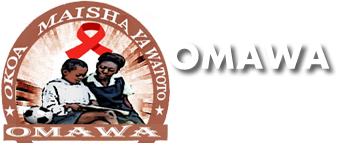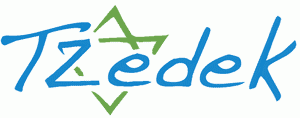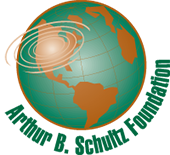Women & Girls Empowerment
Women Empowerment
Across the organization, we work to empower women and girls by expanding access to education, training and increasing economic opportunity, Our goal is to lift millions of women out of poverty and with them, their families and entire communities.
Training
OMAWA conduct training on livestock keeping as an Income generating activities as well as entrepreneurship skills.
To make sure that Women are self reliant OMAWA formed small self help groups of women, each Self Help Group (SHG) consists of 10 women belonging to the same neighborhoods.
The Basic livestock management course (chicken and pig rearing) include animal diseases, animal nutrition, marketing. The training enables the SHG to take care of the animals and to market the products from the project
After the training OMAWA provide piglets and chicks to the SHGs to start income generating activities of poultry and Piggery projects. The project also provides vaccines and feeds for the project. The project is revolving by each group to pass over the same chicks and piglets to another SHG that will be waiting.
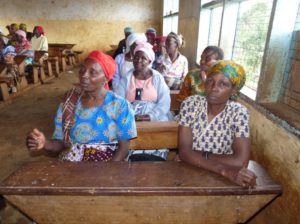
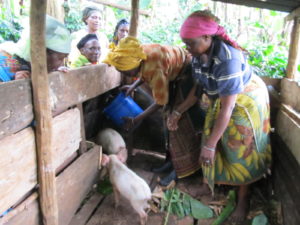
The project has increased the income of 100 women in the Shimbwe Area and we hope the project to continue as it is revolving around the SHGs
Tailoring skills training
OMAWA launched tailoring skills training at Moshi district on the 2015 for rural women hailing from Moshi rural district community or other economically backward communities. They are school or college dropouts. They had discontinued their education due to poverty and lack of parents encouragement. They would be forced to early marriage as well as becoming semi-bonded laborers in the fields or other informal sectors such as building construction, brick making, breaking stones in quarries etc. Hence, these ladies wanted to acquire an income generating skill by attending tailoring training for a period of three to six months.
The training starts every day at 10 a.m. and continues till 5.30 p.m. During the training class, the trainees learn about the basics steps of dress making, cutting, hand embroidery and machine embroidery designing. They also undergo training on making different varieties of bags, pillow covers, table cloth, door mats etc.
These trainees were being provided with a course certificate after successful completion of the course. They find this useful to seek employment in private companies or to seek loan facilities to establish a tailoring shop.
It is encouraging to observe that this course is contributing to the trainees to become economically self – reliant and gain better quality of life. They also are able to acquire self confidence, self esteem and basic life skills. They are no more looked at as a burden to the family.
During the period April 2015 to March 2016, 20 women successfully completed the training.
The selection criteria are:
They should be poor women from the rural area
They should have basic interest and zeal for their development
They should be from the Self Help Groups (SHG), they should be members of the (SHGs)
They should have low income, a minimum of 1 US dollar per day.
They should be from our geographical area
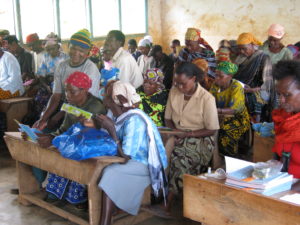
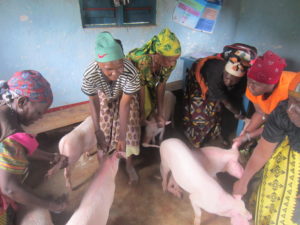
Why support women
In Moshi- rural district poverty has been a major problem, most families cannot meet their basic needs and this has been caused by the HIV/AIDS pandemic. The disease has killed a lot of people in the villages mostly men leaving their women to take care of the families. Men are the breadwinner of most of the families in this area. Most women have had no option but to take over a number of roles which should have been men’s responsibility due to HIV/AIDS, economic hardships, early pregnancy and cultural ties. The problem is very big in rural areas where men are dying because of HIV/AIDS and others do migrate to town in search of work leaving women to take care of the remaining family members with little or no income.
Girls’ empowerment in Tanzania
Our main mission is to support education for disadvantaged Children in Tanzania. Additionally, we wish to support educational initiatives and programs to empower girls and women. Research clearly shows a close link between female education levels and improved quality of life. OMAWA prefers to work with other organizations that promote equal respect and offer a curriculum aimed at educating both male and female students to promote the issue of gender equity.
Gender Equity
Women’s rights are a worldwide issue. Females often experience different freedoms and face varying human rights abuses.
At the very least, gender inequity involves unequal levels of respect for females within a culture or family.
Nationally, girls and women have fewer educational and professional opportunities. This leaves women vulnerable to experience further human rights abuses.
Often girls feel pressured to marry and have children at early ages, which prevent them from going forward with education.
Young girls who are very poor or uneducated are offered money in exchange for sex. This often leads to unplanned pregnancy and sexually transmitted diseases.
Promoting gender equality and promoting education for girls are two of the eight Millennium Development Goals to be achieved by the year 2025.
The first step in the process of improving gender equity involves inspiring the females to break free of the cultural barriers, obtain their education and be proud of who they are.
Improved quality of life for females in society requires the education of both females and males.
OMAWA support the education of girls because higher levels of education for females results in:
Increased respect and better treatment within their families and communities
Increased professional success and prosperity
Improved health for themselves and their families
Lower pregnancy rates
Lower infant death rates
Increased opportunity for posts in government allowing them to introduce gender sensitive policies

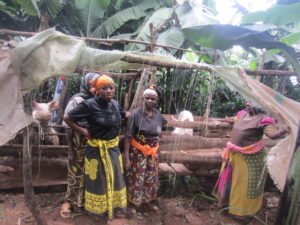

“There is no tool for development more effective than the education of girls.” Late former UN Secretary General Kofi Annan
